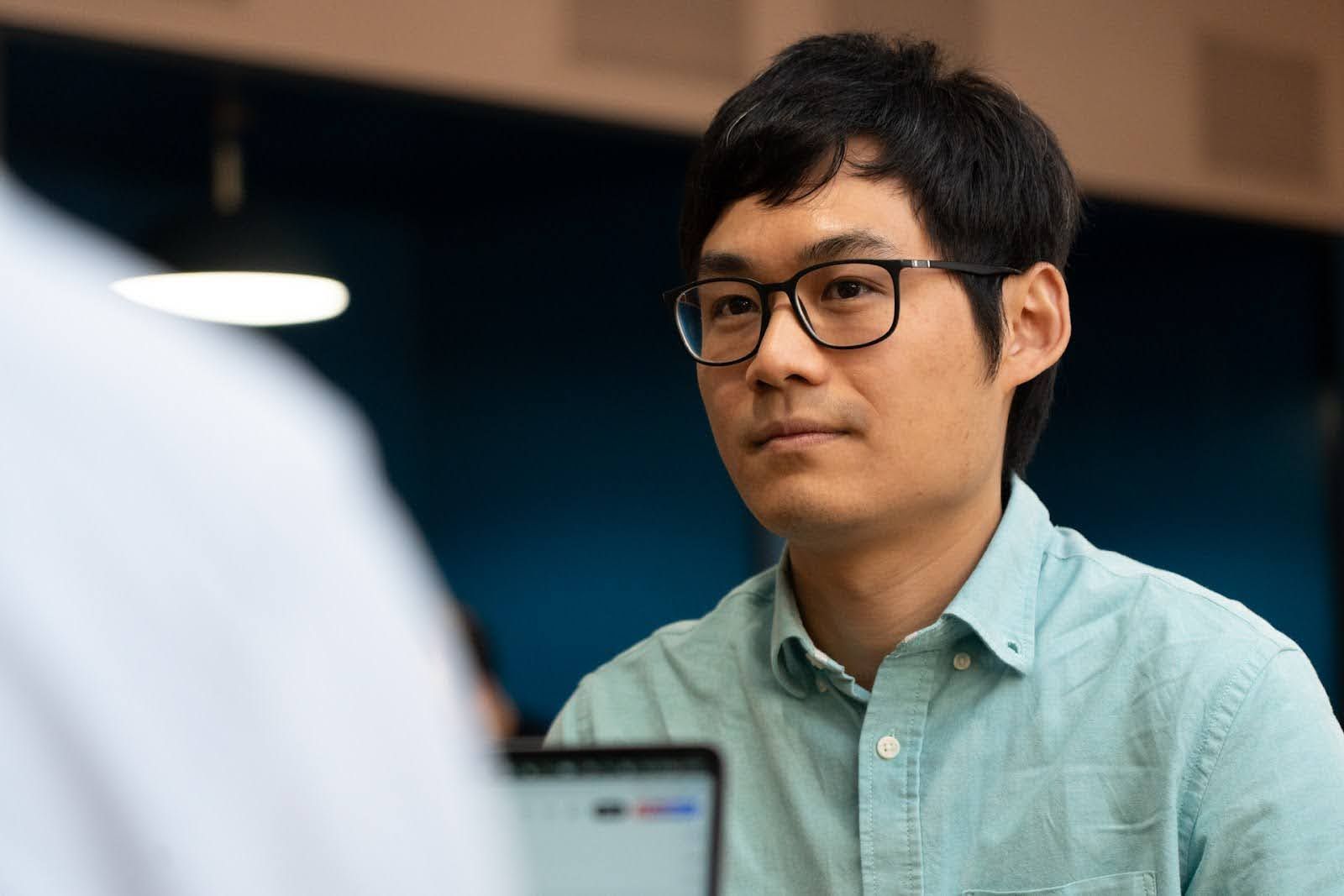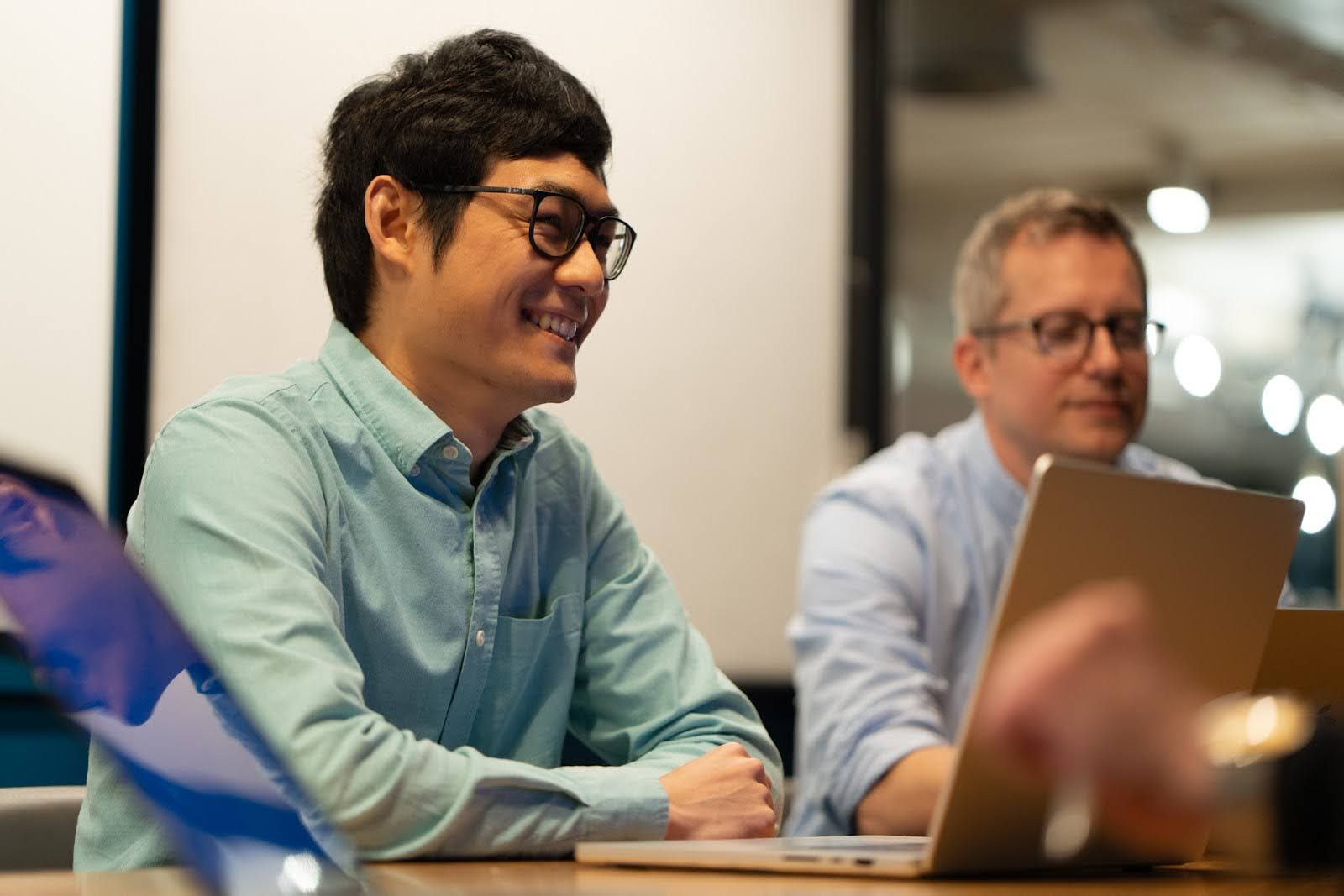The People Behind Vincent: Kuan Hsieh
vLex Senior Research Scientist Kuan Hsieh shares his journey from engineering to legal tech, the daily challenges of building AI for lawyers, and his insights on the future of AI in legal practice—including what it can and can't replace.

As part of our People Behind Vincent series, we chat with Kuan Hsieh, vLex’s Senior Research Scientist, to find out more about his career in tech, including his motivations, highlights, and thoughts on the future of AI.
Welcome Kuan. Let’s go back to the beginning. When did you first decide that technology was the career path you wanted to follow?
I studied engineering in my undergrad and toward the later years of my studies, became interested in information technology. There were so many hard problems to solve, and that challenge drew me in. I then specialised further, completing a PhD in communications technology.
And how did that eventually lead you into legal tech?
My PhD was closely related to machine learning and statistics. I kept up to date with all the latest developments in AI, including early deep learning research. I remember when OpenAI released the GPT-3 technical report. It felt revolutionary to see a single model perform many textual tasks such as answering questions and translating text simply from task descriptions, despite never being explicitly trained for them. I knew this general-purpose technology would transform how text is understood, processed, and generated at scale.
Around the same time, I was dealing with stacks of legal paperwork while buying a house. The frustration of not understanding contracts pointed to an obvious problem just waiting to be solved by technology.
This sparked my move into legal tech and my first role after university was actually with a company using AI to analyse contracts.
So what does your day-to-day role look like now?
A core part of my job is programming. I write code that helps AI models do what our users want them to do. Because we’re building tools for lawyers, the expectations are high, so the models need to be as accurate and controlled as possible. As part of this process, that sometimes means researching and developing our own techniques, or even building new models, to make sure we get the right results.
What motivates you professionally?
I’m still a researcher at heart so there are two sides that motivate me.
On the application side, it’s about seeing how far we can push the technology. People often ask if AI will replace lawyers––exploring that boundary of what's possible with machines, and building right at its edge, is what makes my job interesting.
Then there’s the technology side itself. General-purpose AI is built on mathematical ideas that go back to the ’40s and ’50s, and while it’s come a long way, it still struggles with things like reasoning, data efficiency, and uncertainty calibration. For me, the interesting question is how do we get past those problems?
So really, it’s both sides of the coin. Exploring what AI can do in practice and digging into its fundamental limits to see how far we can push them.

Looking back, are there particular highlights or projects you’re especially proud of?
Often it’s the small wins. At my previous company, the team had been struggling for months to build a machine learning model to detect entities in contracts, like dates and time periods. I wasn’t assigned to that task, but I thought I’d give it a try in my own time. I worked on it quietly for about a week and ended up solving it. I felt proud that my ideas had made a difference.
Another example was developing models to identify clauses in contracts. My team and I created new data to train and improve the models, experimenting with techniques that hadn’t yet been made public. Later, we saw others publish similar ideas which validated what we’d been doing. Those moments, where you see direct results or notice others doing the same things, are very satisfying.
Has anyone in particular influenced or supported your career?
Several of my professors at Cambridge were a significant influence. They were very rigorous in their research, never cutting corners, and that approach has guided me throughout my career.
Right now, I’d say my biggest influence is my manager, Dan Hoadley. He’s a veteran in legal tech, so I’ve learned a lot from his expertise and the way he interacts with different people within the business.
How about outside of work, what helps you switch off?
I’ve just had a baby who is only six weeks old, so my switch off is family time. Even before the baby, I’ve always spent a lot of time with family and friends, so that’s really how I recharge.
Is there something interesting about you that colleagues might not know?
Most people don’t know I grew up in Scotland from ages one to ten. I don’t sound Scottish at all, so people are usually surprised. Most people assume I’m American because of my accent, though I’ve never lived in the US.
What advice would you give to young people thinking about a similar career in tech?
I’d say don’t be afraid to reach out to people in roles you’re interested in. Not everyone will reply, but some will, and those conversations can open doors.
Also don’t underestimate yourself. When you’re starting out, especially in research, it’s easy to think that experienced people have all the answers, when they don’t. They may have tried more things, but new ideas and fresh perspectives are always welcome. Whether you’re an undergraduate or a Master’s student, your insights could be really valuable.
You’ve touched on the future of AI already, but what are your thoughts on how it could progress in the next three to five years?
It’s hard to predict the future, but there are things we do know now for certain. In coding, we still need humans to understand what the user wants, but AI can be better than a junior programmer at writing, reviewing, and documenting code. In law, it’s similar. We need people with the expertise to work with clients and navigate legal situations, but for junior-level tasks like first pass contract review or summarising depositions, AI can be more consistent and run 24/7.
Looking three to five years ahead, it’s anyone’s guess. What I can say is that over the past year, I haven't seen AI for law leap into entirely new domains of capability, but it has rather consolidated its existing strengths. Its improved ability to follow complex instructions has been made far more consistent and reliable when performing well-defined tasks, but it still can’t handle large complex projects all at once.
Ultimately, AI is designed by people, so the real challenge is making sure that those building systems have the right intentions and there are proper guardrails in place. We need to ensure AI does exactly what it’s meant to do, and that we’re clear about its capabilities and limits. That’s a responsibility for the whole industry.
Join the team
We're always seeking brilliant, talented individuals to join our growing team. If you're interested in being part of our mission, go to vLex’s Careers page or contact us at hello@vlex.com.